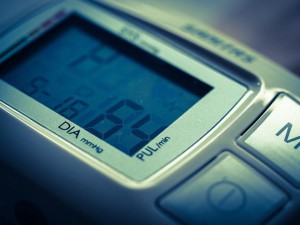 While most people seek massage therapy for its relaxing, stress-reducing benefits, it may also be a beneficial treatment for managing high blood pressure.
While most people seek massage therapy for its relaxing, stress-reducing benefits, it may also be a beneficial treatment for managing high blood pressure.
According to the American Society of Hypertension (ASH), as many as 1 out 3 adults in the U.S. have high blood pressure (known medically as hypertension). If left unchecked, high blood pressure can lead to a wide range of health problems, including kidney disease, heart attack and stroke. Excessive pressure on the arteries and organs stresses them, and subsequently leaves them vulnerable to disease.
It is important to note that high blood pressure is defined as a systolic reading of 140 or higher, and/or a diastolic reading of 90 or higher. Keep in mind that blood pressure will increase and decrease throughout the day. Small fluctuations are completely normal and should not cause too much concern, but if you wonder about this, it’s always best to consult with your physician. If your blood pressure remains higher than 140/90 respectively, it is time to take action to lower it.
So, can massage therapy really help to lower your blood pressure? According to some health experts, the answer is yes. This belief was recently reinforced in a study published in the Journal of Human Hypertension, in which researchers found a number of alternative treatments have proven useful in lowering blood pressure (source).
Massage therapy’s beneficial effects on blood pressure shouldn’t come as a surprise. Because massage leaves you feeling rested and relaxed, this treatment can also lower your heart rate, calm the body and ultimately lower your blood pressure. Massage therapy works to knead out muscle tension while promoting healthy blood flow throughout the body. As a result of this process, clients generally experience lower stress levels. And when you have lower stress levels, your blood pressure usually declines. It’s just that simple.
Massage isn’t the only way you can lower blood pressure. Here are some other techniques that have been proven effective:
- Cut back on salty foods. Excessive sodium intake may lead to elevated blood pressure levels.
- Exercise for a minimum of 30 minutes per day.
- Drink plenty of water – at least eight, 8-ounce glasses per day.
- Consume plenty of antioxidant-rich foods like strawberries, blueberries and other fruits.
- Perform deep-breathing exercises to lower your stress and blood pressure.
- Strive for a solid 7-8 hours of restful sleep per night.
Give me a call today to learn how you can get back on track to better health!
